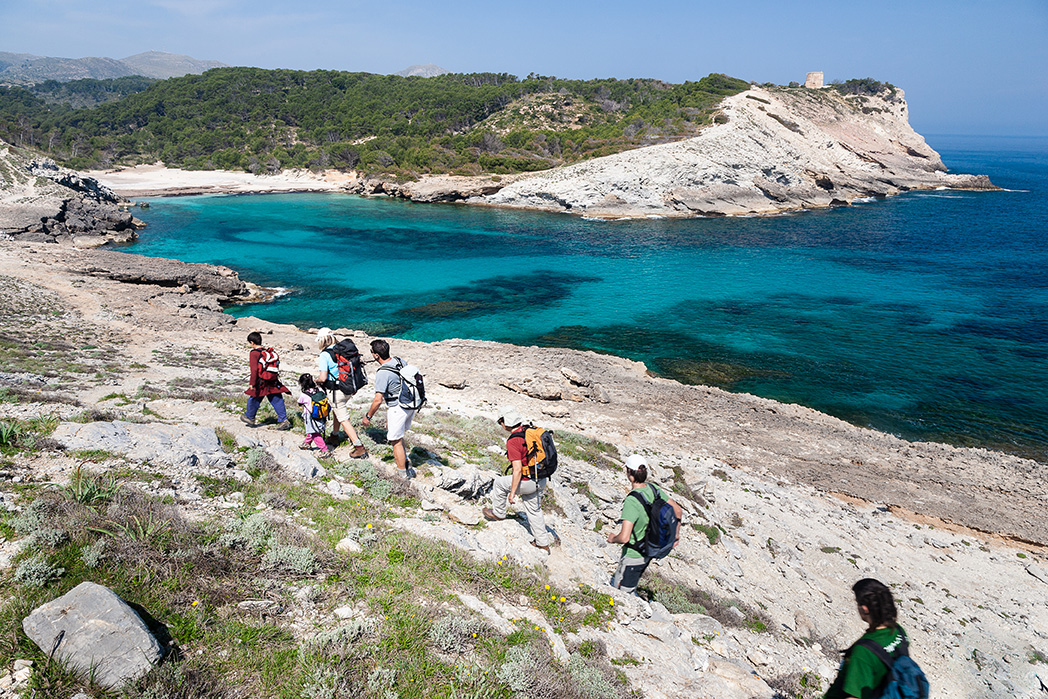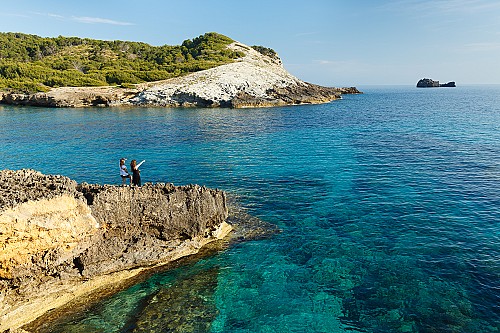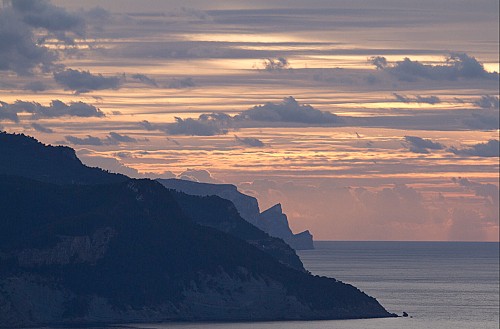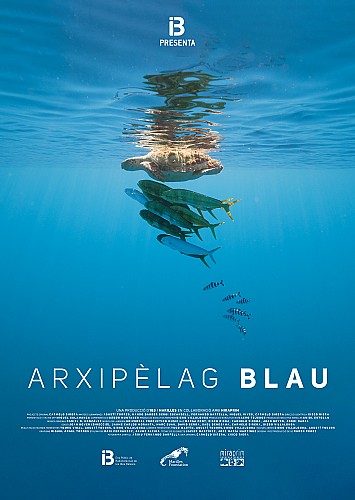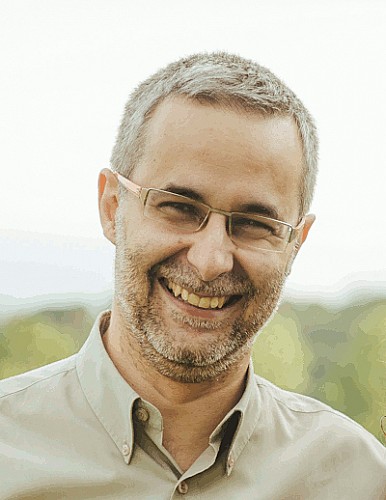A pilot project in the Balearic Islands will study the benefits of marine reserves in the Mediterranean
Marilles Foundation, together with the Balearic Center for Applied Biology (CBBA) and Ecoacsa, will calculate the marine natural capital of the Llevant Marine Reserve in Mallorca.
- The study is part of the European Interreg Med MPA NETWORKS project that aims to improve the management of marine protected areas (MPAs) in the Mediterranean.
- It is one of the first cases of these characteristics applied to the Spanish marine environment. The methodology and results will be replicated to other reserves in the Mediterranean.
- The development of the study will last 1 year and it has a budget of € 60,000, of which 85% will be paid by the European Union and 15% by Marilles.
The stock of habitats and marine species –our natural capital– generate goods and services for our society. Some of them, such us fisheries or tourism, are visible and can be easily calculated; Others, like the feeling of well-being or enjoyment, are more abstract and difficult to measure. Natural capital accounting makes it possible to visualize the relationship between the natural environment, the economy and human well-being; and it facilitates decision-making by governments and companies for a better conservation of our natural heritage.
The objective of the project is to evaluate the contribution of the Marine Reserve of Llevant of fishing interest (to the of Eastern Mallorca) to the local and regional economy, through traditional fishing and leisure activities related to the marine and coastal environment, among others. The aim is to measure the extent, condition and value of the goods and services of the marine reserve and to identify its beneficiaries. Another purpose of the project is to offer data on the benefits obtained (and could be obtained) from investing in the recovery of degraded marine habitats and the conservation of Balearic marine biodiversity. Ultimately, the project wants to make visible the importance of conserving marine ecosystems of the reserve so that the benefits they generate can be sustained in the future.
The Balearic Islands have a network of marine reserves and protected areas whose value and benefits have often gone unnoticed. The Marine Reserve of fishing interest of Llevant in Mallorca has been chosen due to the quality of the scientific information available; the history associated with its declaration and the relevance of the participation of the economic sectors involved in its declaration and management; also due to the fact that the reserve is managed jointly and exemplary by the state and autonomous fisheries authorities.
As coordinator of Interreg project actions in the Balearic Islands, Marilles Foundation will allocate € 60,000 to carry out the study. The Spanish consultancy Ecoacsa will develop the natural capital accounting system and a guide for its application to other MPAs - with the support of the British consultancy Eftec. The Balearic Center for Applied Biology (CBBA) will carry out field-based work, which will consist of gathering information and perception from local actors.
Aniol Esteban, Director of Marilles Foundation, states: “The marine environment provides us multiple benefits: from the fish we eat, to the enjoyment of bathing and diving in the sea. The more we preserve the medium, the more benefits we obtain. Marine protected areas are an excellent tool to guarantee multiple benefits, but we are often not aware of all that they contribute to our economy and society. This project will allow us to better visualize the relationship between a healthy marine environment and economic health and human well-being. Investing in conservation of the marine environment pays off”.
Toni Font, Project Coordinator: “It is very motivating to advance in a field that will undoubtedly provide economic arguments to justify the maintenance and expansion of the resources that MPAs need. We will have useful information for the community of AMP managers in the Balearic Islands. At a minimum, we ensure that the experience reaches 124 organizations that are part of MedPAN managing a total of 110 AMPs in 21 countries.”
David Álvarez, Executive Director of Ecoacsa:“The scientific evidence shows that believing that nature will continue to provide us with the goods and services necessary for our prosperity and well-being is no longer sustainable. However, this reality is not perceived at scale and with due interest by a wide spectrum of society. Through this project and the application of the natural capital approach, we tackle the exciting challenge of highlighting the many benefits that MPAs conservation generates for the Balearic society and economy. The health of our marine ecosystems depends on the good health of our homes and businesses.”
Benjamí Reviriego, CBBA Environmental Consultant: “Fortunately, awareness regarding marine environment preservation -reflected in many initiatives, including the AMP declaration- is a concept that has already permeated society. However, there are still many citizens who do not find it profitable to dedicate resources to conserving assets that do not provide direct and tangible benefits. That is why I see this initiative so interesting, because apart from facilitating decision-making to managers responsible to MPAs, it can help convince those skeptics ».
COMPLEMENTARY INFORMATION
What is natural capital?
'Natural capital' takes into account the relationship between natural assets, the services they provide, and the benefits society derives from them. The marine environment provides multiple goods and services to the Balearic society, such as food, climate regulation and multiple recreational opportunities. It is essential to improve knowledge about the values that sea and coasts bring to economy to improve its management and invest the necessary resources to protect it.
European project on marine protected areas (MPAs)
Despite the increased coverage of MPAs in the Mediterranean, the objective of maintaining marine biodiversity is far from being met. MPAs face many challenges and have multiple deficiencies in the provision of legal instruments and financial resources, which determine the availability of technical and human resources. The Balearic Islands are not an exception in this regard.
The objective of the European project Interreg Med MPA NETWORKS is to contribute to the effective management of Mediterranean MPAs, by proposing solutions in four aspects: effective management, small-scale fisheries management, conservation of mobile species and sustainable financing.
Interreg Med MPA is coordinated by MedPAN and brings together ten Mediterranean partners, mainly AMP management bodies from seven countries: Albania, Croatia, France, Greece, Italy, Slovenia and Spain. Marilles Foundation participates as a partner and has the mission of coordinating the implementation of a marine natural capital accounting system in the AMP of Llevant.
Marilles will export the experience of projects on MPAs in the Balearic Islands and other regions of Spain, while importing examples from other parts of the Mediterranean that may be of interest. The results derived from the pilot project in the Llevant will be connected to those obtained in Spain by the projectLIFE IP Intemares, by Biodiversity Foundation, which aims to achieve a network of marine spaces of the Natura 2000 Network managed effectively. The recommendations that emerge from this collaborative work will be aimed at supporting policy improvements at international, European and national levels.
More info: https://marilles.org/storage/media/2020/06/617/long-project-presentation-english.pdf
Why natural capital accounts are useful
Natural capital accounts allow us to have a perspective on the state of our natural capital, its evolution and how its improvement or deterioration affects its ability to continue providing services in the future.
This information enables correct decisions to be made, both from public and private institutions, to identify investment priorities, improve management and invest in conservation. All this opens the doors to the possibility of creating a medium and long-term conservation program; a 25-year program, as it has been developed in other countries.
Natural assets must be managed in order to obtain products and services. For example, fisheries production depends on marine habitats, the quality of waters and currents, and physical factors that guarantee the life cycle of many species. But it is also necessary the effort of fishermen (human capital), boats and nets (physical capital) and all the services and infrastructure necessary for the fisheries products to reach the point of sale in the market. If we change the structure of an ecosystem we can cause irreversible changes and prevent it from returning to its initial state.
Previous work
The Marilles Foundation has been working for more than a year to lay the foundations for a natural marine accounting system in the Balearic Islands. Accordingly, the following materials, documents and resources have already been developed:
- Mapping of marine habitats of the Balearic Sea.
- Study on the economic and recreational value of fisheries, posidonia and leisure of Balearic beaches(UIB)
- System of comptes naturals per les Illes Balears(Monograph, Report CES2018)
- The Blue Economy(Fundación Impulsa).
Ecoacsa Biodiversity Reserveis a Spanish company created with the aim of disseminating, promoting and developing tools that allow natural capital valuation and biodiversity integration into business sector. Ecoacsa provides market analysis and strategic advice to incorporate environmental sustainability and natural capital conservation in decision-making, action plans and strategies at corporate and project levels. Its focus is on promoting and facilitating the transition from “business as usual” towards sustainable business models.
Ecoacsa promotes the Natural Capital Factory, the Spanish regional platform of the Natural Capital Coalition- since January 2020, merged with the Human and Capital Coalition to form the Capitals Coalition, a global collaboration that transforms the way decisions are made by including the value provided by nature, people, and society. More information: www.ecoacsa.com
The BALEAR CENTER OF APPLIED BIOLOGY. SL is a Spanish company created in 1994, which offers consulting, auditing, advisory, management and analysis services in the fields of the environment, food safety and quality control.
Since its creation, it has carried out evaluation studies of the repercussions of human activities on the environment, studies on marine and terrestrial ecosystems, coastal dynamics, dispersion and dilution in the marine environment, plans for environmental monitoring of works and projects; elaboration of thematic cartographies, bathymetric studies. He develops monitoring studies in marine protected areas, in coastal water bodies, and has led several R&D projects in the field of applied biology.
CBBA has its own physical-chemical and biological analysis laboratory, which is authorized by the Department of Health and Consumers of the Government of the Balearic Islands and is accredited by the National Accreditation Entity (ENAC). CBBA is certified with a quality management system ISO 9001: 2015 and environmental management according to ISO 14001: 2015.

